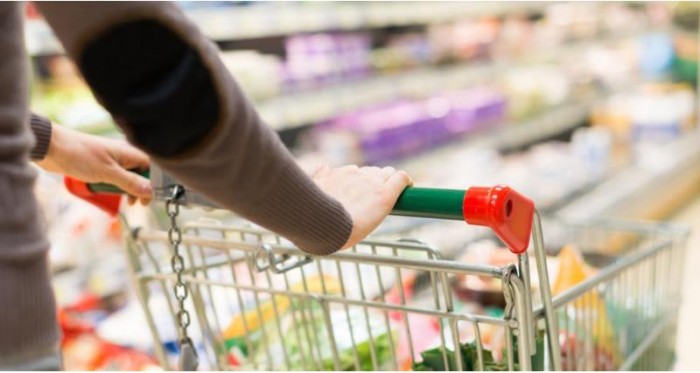According to the latest PorkWatch data, the percentage of British pork facings in GB supermarkets has fallen this year.
This is an indication of the amount of supermarket shelf-space occupied by pork from British farms. It is important to note that retail facings will not necessary correlate to the volume of product sold. PorkWatch is managed by AHDB, with store audits conducted by ESA Retail across a sample of stores.
Across the four bi-monthly surveys conducted so far in 2017, British pork facings averaged 79% of the total market, two percentage points less than the equivalent average in 2016. With UK production falling this year, it may be that supermarkets have needed to increase reliance on imported product.
In Asda, the percentage of British pork facings fell by 10 points compared to the January-July surveys a year earlier, averaging 44%. Lidl increased the percentage of British pork facings by five points over the same period, now averaging 99%. All the other retailers stood on last year’s levels, with all apart from Tesco offering exclusively British pork.

British bacon facings were also two percentage points lower than in the first 4 surveys of 2016, averaging 45%. This was driven by falling percentages from Asda (-5), Morrisons (-7) and Tesco (-4), although other supermarkets posted increases in their percentage of British bacon facings. The Co-op reported an increase of 12% year-on-year, after pledging in May to sell only British fresh meat. British ham facings also fell compared to a year earlier, by one percentage point to average 64%, following from declines by Morrisons (-5), Asda (-1) and M&S (-3).
Conversely, the percentage of British sausage facings was, on average, higher on the year in the first four surveys of 2017, gaining two percentage points to reach 84%. Lidl posted the largest increase, gaining 11 percentage points year-on-year and offering 100% British sausages in most of the surveys since July 2016. Most other supermarkets reported stable or increasing facings of British sausages, with only Aldi and Morrisons being the exceptions, posting small declines of one percentage point.




